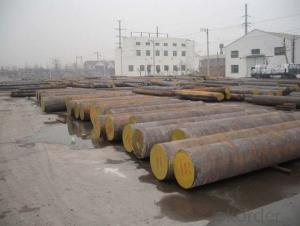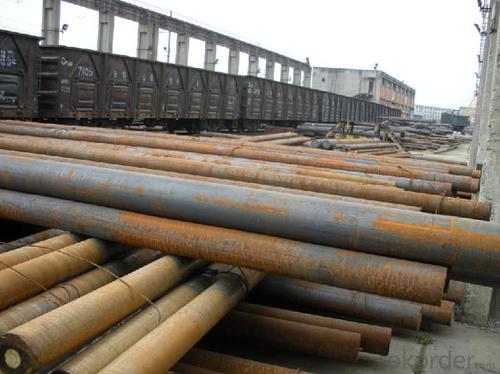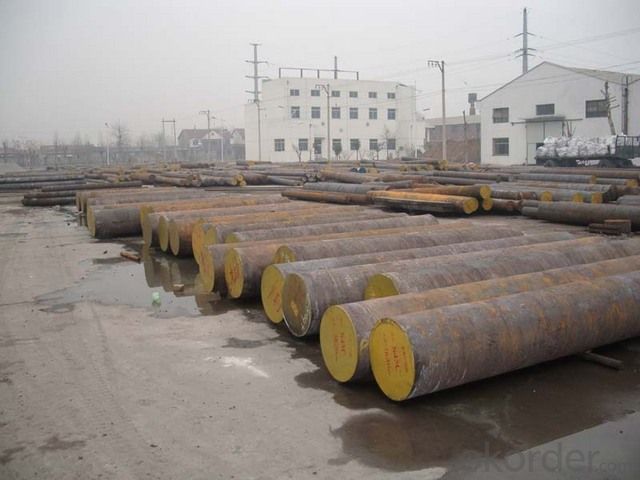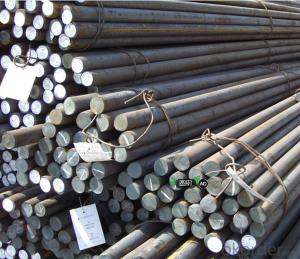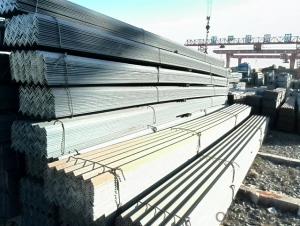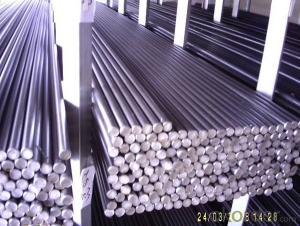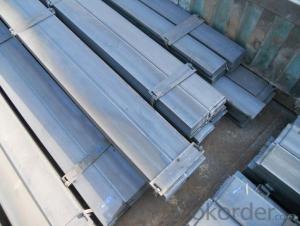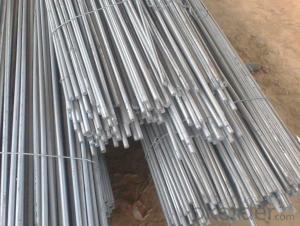20Cr Alloy Steel Bar Forged or Hot Rolled
- Loading Port:
- Tianjin
- Payment Terms:
- TT OR LC
- Min Order Qty:
- 25 m.t.
- Supply Capability:
- 50000 m.t./month
OKorder Service Pledge
OKorder Financial Service
You Might Also Like
Specification
20Cr Alloy Steel Bar Forged or Hot Rolled
Product Description:
Grade: ASTM 1020 / 20Cr
State:hot forging+normalizing+turning
Size:90mm to 1500mm
Length:4 to 6 meter or according to request
Billet:EAF+LF+VD
Straightness:≤4mm/m(black), ≤2mm/m(turning)
OD Tolerance:-0/+8mm(black),-0/+3 mm(turning)
Grain Fineness:ASTM E112-96 > Level 5 or better under annealing state;
Non Metallic Inclusion:ASTM E45 A/B/C/D heavy ≤2, thin ≤2.5
Test:SEP1921 CLASS C/C,D/d,E/e;GB/T 6402-91;GB/T6402-2008/ASTM A388/ASTM A709
MTC:EN 10204-3.1/EN10204-3.2 RONA/BV/SGS Certificate
Lead Time:30 to 60 days after order confirmed
Chemical composition:
Grade | C | Cr | Mn | Si | P | S | Ni | Cu | Mo |
≤ | |||||||||
20Cr | 0.18-0.24 | 0.70-1.00 | 0.50-0.80 | 0.17-0.37 | 0.035 | 0.035 | 0.30 | 0.30 | 0.15 |
Features and Use scope:
It has higer intensity and hardenability than 15Cr,worse toughness ,better weldability ,after welding it don't need to heat treatment.It used to making the parts which have special request in intensity of core and the larger-size appearance can bear abrasion ,or cementite parts of complex shape and seldom burthen ,such as gear , gear shaft ,cam, gudgeon pin ,worm and so on ,it also used to making tempering parts of big speed and can bear middle impact load.
Product Show:
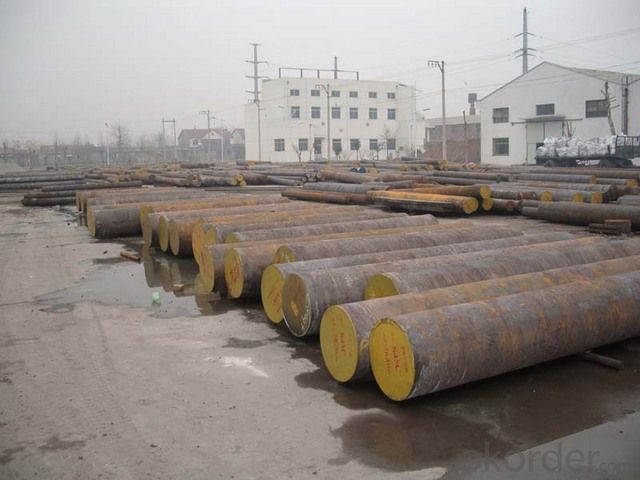
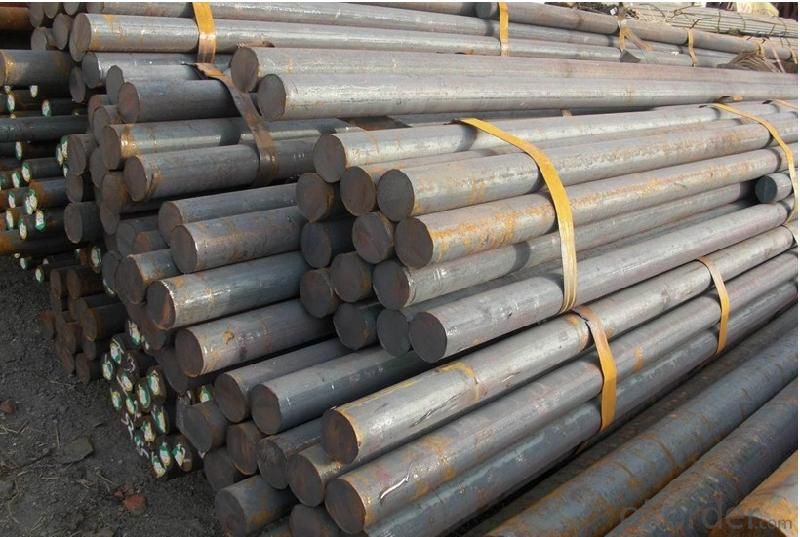
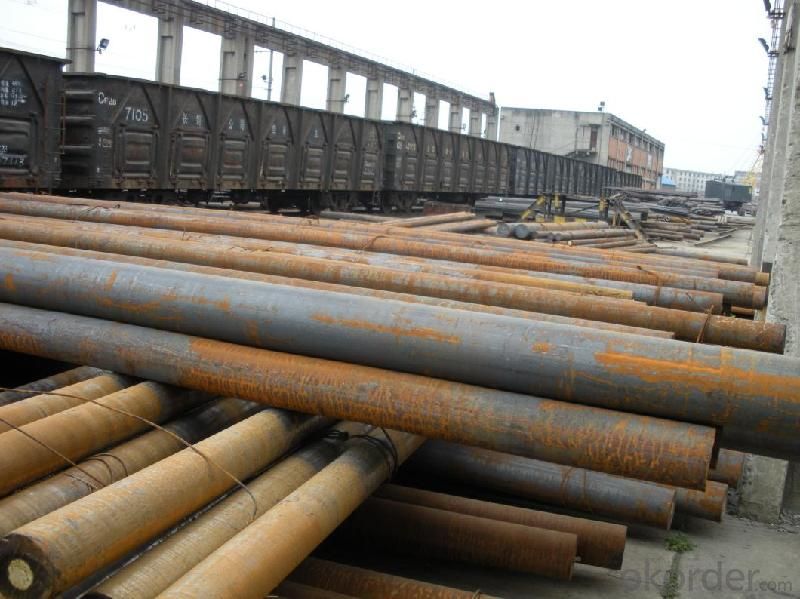
- Q: How does special steel perform in cryogenic ductility?
- Special steel exhibits excellent performance in terms of cryogenic ductility. Cryogenic ductility refers to a material's ability to retain its strength and flexibility even at extremely low temperatures. Special steels are engineered specifically to endure harsh conditions, including cryogenic temperatures, making them suitable for applications such as LNG storage tanks, aerospace components, and superconductors. The composition of special steel is one of the key reasons for its exceptional cryogenic ductility. Generally, special steels are alloyed with elements like nickel, chromium, and molybdenum, which enhance their mechanical properties and resistance to low temperatures. These alloying elements provide the steel with increased strength, toughness, and resistance to brittle fracture, even in extremely cold environments. Moreover, special steels go through rigorous testing and quality control measures to ensure their performance in cryogenic conditions. This involves testing for parameters such as impact toughness, fracture toughness, and notch toughness, which are critical in assessing a material's ability to withstand brittle failure at low temperatures. Additionally, the manufacturing processes employed for special steel contribute to its excellent cryogenic ductility. Methods like vacuum induction melting and controlled cooling are often utilized to produce special steels. These techniques aid in eliminating impurities and improving the material's microstructure. This refined microstructure enhances the steel's ductility, enabling it to retain its mechanical properties even in cryogenic temperatures. In conclusion, special steel exhibits exceptional performance in terms of cryogenic ductility due to its meticulously designed composition, stringent testing, and advanced manufacturing processes. These factors make it a dependable and preferred choice for various industries that require materials capable of withstanding extreme cold conditions while maintaining strength and flexibility.
- Q: What are the different surface finishing methods used for special steel?
- There are several surface finishing methods used for special steel, including electroplating, powder coating, anodizing, painting, and passivation. These methods are employed to enhance the appearance, corrosion resistance, durability, and overall performance of the steel.
- Q: How does special steel perform in high-temperature mechanical applications?
- Special steel performs exceptionally well in high-temperature mechanical applications. Thanks to its unique composition and properties, such as high strength, excellent heat resistance, and thermal stability, special steel can withstand extreme temperatures without losing its structural integrity or mechanical properties. It exhibits minimal creep, oxidation, and deformation, ensuring reliable performance and durability in demanding high-temperature environments.
- Q: How does special steel perform in high-speed machining operations?
- Special steel is specifically designed to withstand high-speed machining operations with exceptional performance. Its unique composition and properties, including high hardness, heat resistance, and wear resistance, allow it to maintain its strength and durability even under extreme cutting speeds and temperatures. This enables special steel to deliver superior machining efficiency, precision, and surface finish, making it an ideal choice for high-speed machining operations.
- Q: What are the cost implications of using special steel?
- The cost implications of using special steel can vary depending on factors such as the specific type of special steel required, its availability, and the market demand. Generally, special steel is more expensive than regular steel due to its unique composition and enhanced properties. Additionally, the production process for special steel may involve additional steps or specialized equipment, further increasing the cost. However, the higher cost of special steel can often be justified by its superior performance and durability, making it a worthwhile investment for applications that require specific characteristics or high-performance requirements.
- Q: What are the different surface defects in special steel?
- There are several different surface defects that can occur in special steel. Some of the common defects include: 1. Scale: Scale is a thin layer of oxide that forms on the surface of steel during the manufacturing process. It can appear as a flaky or powdery substance and can be caused by exposure to high temperatures or improper cooling. Scale can affect the appearance and quality of the steel surface. 2. Pitting: Pitting is the formation of small, localized holes or depressions on the surface of the steel. It can be caused by corrosion, improper cleaning or surface preparation, or exposure to harsh environments. Pitting can weaken the steel and make it more susceptible to further corrosion. 3. Scratches: Scratches are physical marks or indentations on the surface of the steel. They can occur during handling, transportation, or processing of the steel. Scratches can affect the appearance and integrity of the steel surface and may need to be repaired or removed. 4. Roll marks: Roll marks are impressions or patterns left on the steel surface during the rolling process. They can appear as lines, grooves, or ridges and can be caused by uneven pressure or improper alignment of the rolling equipment. Roll marks can affect the surface smoothness and may require additional processing or polishing to remove. 5. Inclusions: Inclusions are foreign particles or substances that are embedded within the steel. They can be caused by impurities in the raw materials or contamination during the manufacturing process. Inclusions can weaken the steel and may lead to cracks or fractures. 6. Decarburization: Decarburization is the loss of carbon from the surface layer of the steel. It can occur during heating or annealing processes, and it can result in reduced hardness and strength of the steel surface. Decarburization is usually undesirable in special steel as it affects its performance. These are just some of the surface defects that can occur in special steel. It is important to identify and address these defects to ensure the quality and performance of the steel product.
- Q: How is special steel used in the telecommunications supply chain?
- Special steel is used in the telecommunications supply chain for a variety of applications. It is commonly used in the manufacturing of telecommunication towers, antennas, and satellite dishes due to its high strength and durability. Special steel is also utilized in the production of transmission lines, cables, and connectors, where its corrosion resistance and electrical conductivity properties are essential. Additionally, special steel is employed in the fabrication of equipment racks, cabinets, and enclosures, providing a sturdy and secure housing for telecommunication devices. Overall, special steel plays a crucial role in ensuring the reliability and performance of telecommunications infrastructure.
- Q: What are the different forms of special steel?
- There are several different forms of special steel, including stainless steel, tool steel, high-speed steel, alloy steel, and carbon steel. Each form has its own unique properties and characteristics that make it suitable for specific applications.
- Q: What is the cost of special steel compared to other materials?
- The cost of special steel can vary depending on various factors such as the type of steel, its composition, and market conditions. Generally, special steel tends to be more expensive than common materials like carbon steel or aluminum due to its unique properties and specialized manufacturing processes. However, it is important to consider that the cost of materials is just one aspect of the overall cost of a project, as factors like durability, performance, and maintenance requirements also play a significant role in the decision-making process.
- Q: What are the different heat treatment defects in special steel?
- During the heat treatment process of special steel, various defects can occur. Some of the most frequently encountered defects are as follows: 1. Decarburization: This defect arises when the steel's outer layers lose carbon due to exposure to high temperatures in an environment rich in oxygen. The consequence of decarburization is reduced hardness and strength in the treated steel. 2. Quench cracking: Also known as cracking during quenching, this defect emerges when the steel undergoes rapid cooling subsequent to heating. The differential cooling rates can induce internal stresses, resulting in cracks within the material. 3. Distortion: Distortion refers to alterations in the shape or dimensions of the steel during the heat treatment process. It can be caused by uneven heating or cooling, inadequate fixturing, or improper quenching techniques. 4. Soft spots: Soft spots are localized areas of reduced hardness in the treated steel. These spots can occur due to insufficient heating or improper quenching, leading to diminished mechanical strength in those regions. 5. Overheating: Overheating is a defect that occurs when the steel is subjected to excessively high temperatures during the heat treatment process. This can lead to grain growth, reduced toughness, and overall decreased material properties. 6. Case hardening problems: Special steels often undergo case hardening processes, such as carburizing or nitriding, to create a hardened outer layer. However, several defects can arise during these processes, including inadequate or excessive hardening, poor case depth, or uneven distribution of hardness. 7. Residual stresses: Residual stresses are internal stresses that persist in the steel after the heat treatment process. If not properly controlled, these stresses can cause dimensional instability, warping, or even cracking. To prevent or minimize these heat treatment defects, it is crucial to adhere to proper heat treatment procedures. This includes precise temperature control, appropriate cooling rates, and suitable fixturing techniques. Furthermore, the use of high-quality heat treatment equipment, close monitoring of the process, and thorough inspections can aid in detecting and rectifying any potential defects in special steel.
Send your message to us
20Cr Alloy Steel Bar Forged or Hot Rolled
- Loading Port:
- Tianjin
- Payment Terms:
- TT OR LC
- Min Order Qty:
- 25 m.t.
- Supply Capability:
- 50000 m.t./month
OKorder Service Pledge
OKorder Financial Service
Similar products
Hot products
Hot Searches
Related keywords

